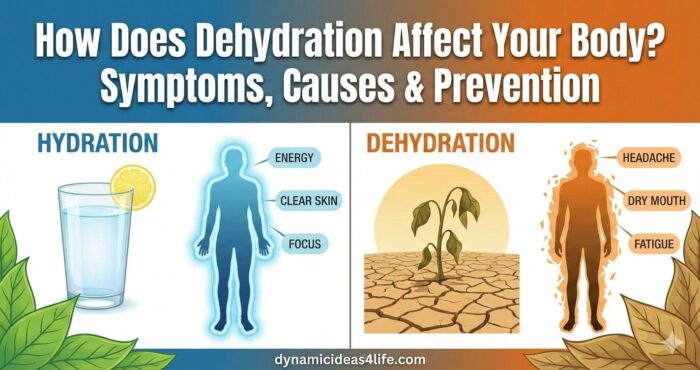GERD and Occasional Heartburn are two common conditions that affect millions of people worldwide. While occasional heartburn is a normal occurrence for many individuals, GERD is a chronic condition that requires ongoing management.
Understanding the difference between these two conditions and knowing how to manage them is crucial for maintaining overall health and well-being.
In this article, we shall look to explore both and what can be done to bring this under control.
GERD and Occasional Heartburn: What Is The Best Treatment To Help Manage This Condition?
GERD is a chronic condition that occurs with progressive acid reflux when stomach acid flows back into the esophagus, causing irritation and inflammation. Unlike occasional heartburn, which is a temporary discomfort caused by the reflux of stomach acid into the esophagus, GERD is characterized by persistent symptoms that occur at least twice a week.
These symptoms can include heartburn, regurgitation, chest pain, difficulty swallowing, and a chronic cough.
There are several risk factors that can increase the likelihood of developing GERD. These include obesity, smoking, pregnancy, hiatal hernia, and certain medical conditions such as diabetes and connective tissue disorders.
Understanding these risk factors can help individuals take proactive steps to prevent or manage GERD.
The Link Between GERD and Occasional Heartburn: Exploring the Connection
Occasional heartburn can be a symptom of GERD, but it does not always indicate the presence of the disease.
Typically, Occasional Heartburn is caused by certain foods or lifestyle choices that can trigger the reflux of stomach acid into the esophagus. However, if heartburn occurs frequently or becomes more severe over time, it may be a sign of underlying GERD. Recognizing the connection between occasional heartburn and GERD is important because it can help individuals seek appropriate medical advice and treatment.
Ignoring persistent symptoms can lead to complications and further damage to the esophagus.
Unmasking the Symptoms: How to Recognize GERD and Occasional Heartburn
Both GERD and occasional heartburn share common symptoms such as a burning sensation in the chest, regurgitation of stomach acid, and difficulty swallowing.
However, there are some key differences that can help differentiate between the two conditions. Occasional heartburn is usually triggered by certain foods or activities and tends to occur sporadically.
On the other hand, GERD symptoms are persistent and occur at least twice a week.
It is important to seek medical advice if you experience frequent or severe symptoms, as this can help determine whether you have GERD or occasional heartburn.
A healthcare professional will be able to provide an accurate diagnosis and recommend appropriate treatment options.
What Causes GERD and Occasional Heartburn
The underlying cause of GERD is a weakened lower esophageal sphincter (LES), which is the muscle that separates the esophagus from the stomach.
When the LES is weak or relaxes inappropriately, stomach acid can flow back into the esophagus, causing irritation and inflammation. Occasional heartburn, on the other hand, can be caused by a variety of factors.
These include certain foods such as spicy or fatty foods, caffeine, alcohol, and chocolate.
Other triggers can include smoking, obesity, pregnancy, and certain medications.
Lifestyle choices can also play a role in the development of both GERD and occasional heartburn.
Maintaining a healthy weight, avoiding trigger foods, quitting smoking, and managing stress can all help reduce the risk of developing these conditions.
Debunking Myths: Common Misconceptions About GERD and Occasional Heartburn
There are several misconceptions surrounding the causes and treatment of GERD and occasional heartburn.
One common myth is that spicy foods or acidic foods directly cause these conditions.
While these foods can trigger symptoms in some individuals, they are not the underlying cause of GERD or occasional heartburn.
Another myth is that certain activities such as lying down after a meal or exercising after eating can cause these conditions.
However, whilst these activities can exacerbate symptoms in individuals who already have GERD, they do not directly cause these conditions. It is important to rely on accurate information when it comes to managing GERD and occasional heartburn.
Consulting with a healthcare professional and seeking reputable sources of information can help dispel these myths and provide accurate guidance for management.
Lifestyle Changes for GERD and Occasional Heartburn Relief
Making lifestyle changes can be an effective way to manage both GERD and occasional heartburn.
Some tips for relief include;
Maintaining a healthy weight: Excess weight can put pressure on the stomach, causing stomach acid to flow back into the esophagus. Losing weight can help alleviate symptoms.
Avoiding trigger foods: Certain foods can trigger symptoms in individuals with GERD or occasional heartburn.
It is important to identify and avoid these trigger foods to prevent discomfort.
Elevating the head of the bed: Raising the head of the bed by 6 to 8 inches can help prevent stomach acid from flowing back into the esophagus while sleeping.
Managing stress: Stress can worsen symptoms of GERD and occasional heartburn. Incorporating stress management techniques such as exercise, meditation, or therapy can help alleviate symptoms.
Medications and Treatments For The Management of GERD and Occasional Heartburn
There are several medications available for managing GERD and occasional heartburn. These include;
- Antacids, which neutralize stomach acid;
- H2 blockers, which reduce the production of stomach acid; and
- Proton pump inhibitors (PPIs), which block the production of stomach acid.
Many people can find relief from these treatments but it should also be noted as well that there are reported side effects from all these medications. Some may prefer to look to natural remedies and alternative medicine.
Betaine HCL is something that may help some people. You can find out more about this here. It’s not your typical treatment for GERD but it’s good to know about I think.
But either way, It is important to consult with a healthcare professional before starting any medication for GERD or occasional heartburn. They will be able to recommend the most appropriate treatment option based on your individual needs and medical history.
Like with anything really but most doctors will recommend the medications above so keep this in mind.
Now…
The Role of Diet: Foods to Avoid and Foods to Embrace for GERD and Occasional Heartburn
Certain foods can trigger symptoms in individuals with GERD or occasional heartburn. These include;
- Spicy Foods,
- Fatty Foods,
- Citrus Fruits,
- Tomatoes,
- Milk Chocolate,
- Caffeine,
- Carbonated Drinks
- and Alcohol.
So, It is important to identify and avoid these trigger foods to prevent discomfort. Knowing what is not good to eat if you have persistent acid reflux is good information to know. This is true in many cases but on the other hand, there are also certain foods that may help alleviate these symptoms. These include;
- Ginger,
- Oatmeal,
- Non-Citrus Fruits,
- Leafy Green Vegetables,
- Lean Proteins, and
- Whole Grains.
Incorporating these foods into your diet can help reduce the frequency and severity of symptoms for many people. A sensible diet for GERD and Occasional Heartburn should include minimal amounts of foods from the first list and more foods from the second list.
Although I would say if there is an exception Citrus fruits are a good source of Vitamin C which is good to have in the right amounts. Tomatoes I’d say likewise but only as whole foods, not tomato-based products.
Definitely do your research here but anyhow…
When to Seek Medical Help: Identifying Serious Complications of GERD and Occasional Heartburn
Untreated GERD can lead to serious complications such as esophagitis (inflammation of the esophagus), esophageal strictures (narrowing of the esophagus), Barrett’s esophagus (a precancerous condition), and even esophageal cancer.
It is important to seek medical help if you experience any of the following symptoms:
- Difficulty swallowing
- Unintentional weight loss
- Chest pain
- Chronic cough
- Blood in vomit or stool
Regular check-ups and monitoring are also important for the long-term management of GERD and occasional heartburn.
This allows healthcare professionals to assess your condition and make any necessary adjustments to your treatment plan.
How to Reduce the Risk of GERD and Occasional Heartburn
Preventing the development of GERD and occasional heartburn is possible by making certain lifestyle choices.
Some tips for reducing the risk include:
⦁ Maintaining a healthy weight
⦁ Avoiding trigger foods
⦁ Quitting smoking
⦁ Managing stress
⦁ Eating smaller, more frequent meals
⦁ Avoiding lying down immediately after eating
It is also important to seek medical advice for personalized prevention strategies. A healthcare professional can assess your individual risk factors and provide guidance on how to reduce your risk of developing these conditions.
In Conclusion
GERD and occasional heartburn are common conditions that can significantly impact an individual’s quality of life.
Understanding the difference between these two conditions and knowing how to manage them is crucial for maintaining overall health and well-being.
By making lifestyle changes, seeking appropriate medical advice, and taking proactive steps to prevent these conditions, individuals can take control of their health and alleviate symptoms.
The steps above I hope can be a good resource to learn from and if you would like to read more about Acid Reflux, GERD, and Heartburn (Click HERE)






Anxiety and Depression BiOptimizers blood pressure supplements blood sugar control blood sugar support supplements cognitive function digestive enzymes Digestive Enzymes Supplement digital products Dr Sam Robbins Gut Health Gut Health While Travelling Health Tips for Travelling Healthy Living heart health HFL how to lower blood sugar levels How To Lower Cholesterol insulin resistance joint health supplement Keto keto dieting Keto Diet Weight Loss leaky gut supplements leptin resistance Magnesium deficiency Matt Gallant mental health multivitamins Nootopia Nootropics Probiotics Probiotic Supplements reverse type 2 diabetes stress and anxiety stress relief Supplements vitabalance vitapost Wade Lightheart weight loss articles weight loss diet plans weight loss product reviews weight loss supplements weight loss tea


